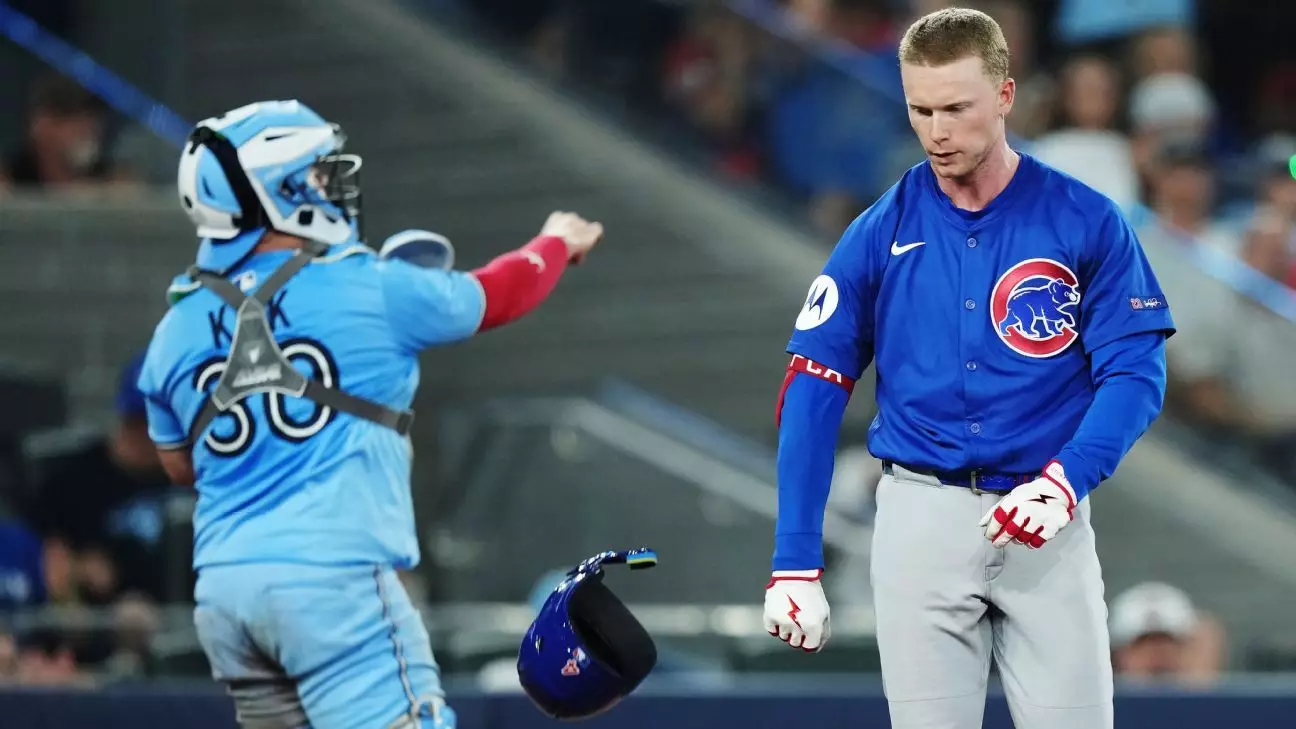The Chicago Cubs find themselves navigating a turbulent phase marked by a noticeable offensive downturn. Once a powerhouse at the plate, their recent struggles have cast doubt on their playoff aspirations. But rather than succumb to panic, the team’s leaders are emphasizing perseverance, reminding both players and fans that setbacks are a natural part of the journey toward excellence. This perspective demonstrates a maturing approach—one that recognizes success not solely in immediate results, but in the consistent application of proven principles. For a team that was atop the league early in the season, the current dip underscores how vital mental resilience is in professional sports.
What’s striking about the Cubs’ current predicament is their refusal to let the slump define them. Instead of focusing on the negative statistics—like their ranking of 28th in runs scored since the All-Star break—they are shifting the narrative towards process over outcome. The management’s emphasis on toughness and mental fortitude is a testament to their understanding: baseball, much like life, is unpredictable and often unforgiving. In resisting the impulse to panic, they embed a growth mindset within their culture, aiming to emerge stronger once the challenging streak passes.
Deciphering the Offensive Struggles: A Multifaceted Challenge
Analyzing their offensive struggles reveals a complex, collective issue rather than the deficiency of a single player. Historically productive hitters such as Kyle Tucker, Seiya Suzuki, and Ian Happ have all faced dips in productivity, underscoring the team-wide nature of this slump. Tucker, despite some early-season success, has seen his batting average plummet to .195 since July 1, while Suzuki and others have seen their RBIs vanish or their batting averages decline. These statistics paint a picture of a team struggling to generate offense in pivotal moments, particularly with runners in scoring position.
However, it’s critical to note that these struggles shouldn’t overshadow their overall potential. Players like Tucker and Suzuki continue to possess the talent, and their recent difficulties are often amplified by mental hurdles rather than lack of skill. The injury scare involving Tucker’s finger, while a potential concern, appears to be a red herring—highlighting how physical health is less of a problem than mental confidence. The challenge then becomes about restoring belief and rhythm at the plate, rather than overhauling their approach.
Leadership and Mindset: The Pillars of Turning the Tide
In difficult times, true leadership manifests in words and actions that elevate the entire team. Manager Craig Counsell’s philosophy—focusing on what players can control and trusting the process—firmly anchors the team’s approach. His emphasis on consistency and resilience seeks to cultivate an environment where players aren’t overwhelmed by immediate results but are instead committed to honing their skills day-by-day.
The mental game is central here. Pete Crow-Armstrong’s candid acknowledgment of the pressure he feels illuminates a broader truth: internal struggles often mirror external realities. Yet, despite his struggles at the plate, he maintains a positive outlook, recognizing the season’s lengthy runway. This mindset—viewing adversity as part of the learning curve—can differentiate a team that folds under pressure from one that uses setbacks as stepping stones.
Furthermore, the Cubs’ ability to maintain their wild-card positioning despite their offensive struggles highlights their resilience. They have avoided being swept in series, a noteworthy feat in today’s competitive baseball landscape. This resilience isn’t just about individual talent but about a collective mental toughness that keeps them afloat amidst adversity.
Rebuilding Momentum: A Philosophy of Patience and Purpose
Applying patience and unwavering focus on fundamentals is the key to regaining offensive firepower. The Cubs are not advocating a radical overhaul but a recommitment to their core principles—approach, discipline, and grit. The recognition that “not every hit will fall in your favor” and “results can lag behind effort” underscores a mature understanding of baseball’s rhythm.
The team’s ongoing division battles—facing the red-hot Milwaukee Brewers and resilient Cincinnati Reds—serve as meaningful tests. These battles are opportunities for growth, resilience, and proving that they can thrive under pressure. Their refusal to be overwhelmed by the standings or the current losing streak signifies confidence rooted in a long-term vision rather than short-term fixes.
In sports, and life, adversity often reveals the depth of one’s character. The Cubs’ emphasis on process, mental toughness, and consistency signals a belief that stumble is merely a setup for a comeback. Their foundation remains strong, and if they can maintain this mindset, they are poised not only to rediscover their offensive rhythm but to emerge stronger, more cohesive, and better equipped for future challenges.

